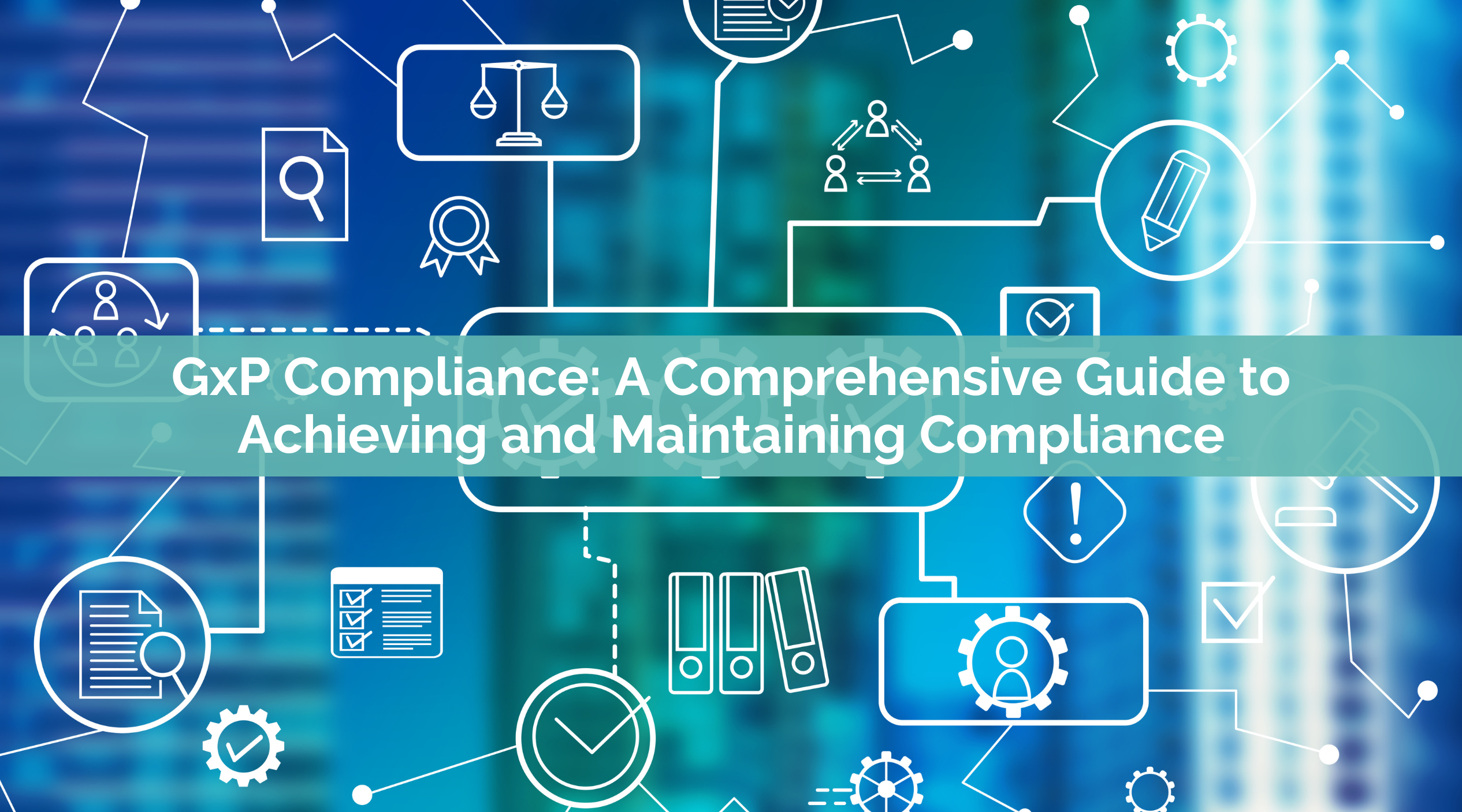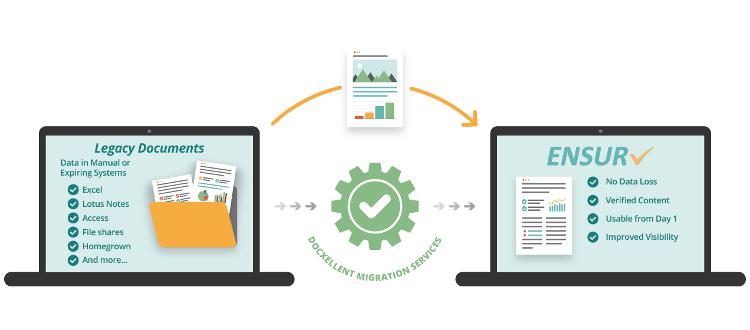
In today's highly regulated industries, ensuring compliance with industry-specific standards and regulations is paramount. One such standard that plays a vital role in industries such as pharmaceuticals, medical devices, and biotechnology is GxP compliance. In this comprehensive guide, we will explore the fundamentals of GxP compliance, its importance, the industries responsible for it, and the key elements of the compliance process.
What is GxP Compliance?
GxP compliance is a set of quality guidelines and regulations that govern various industries, including pharmaceuticals, medical devices, and biotechnology. The "G" in GxP stands for "good," representing the good practices required to ensure quality, safety, and integrity throughout the product lifecycle. The "x" can be replaced with specific letters depending on the industry, such as GMP (Good Manufacturing Practice) for pharmaceuticals or GLP (Good Laboratory Practice) for laboratories. GxP compliance encompasses a range of standards, including GMP, GLP, GDP (Good Distribution Practice), GCP (Good Clinical Practice), and others, depending on the industry and product type.
Why is GxP Compliance Important?
GxP compliance ensures the safety and quality of products, protecting consumers from potential harm and ensuring that products meet stringent quality standards. Compliance also fosters trust and credibility among stakeholders, including regulators, customers, and partners, enhancing the reputation of companies operating in these industries. Moreover, adhering to GxP regulations mitigates legal and financial risks, as non-compliance can result in severe penalties, product recalls, and reputational damage.
Which Industries are Responsible for GxP Compliance?
GxP compliance is primarily the responsibility of industries that develop, manufacture, distribute, and test products that directly impact human health and safety. The pharmaceutical industry, encompassing the development and production of drugs, is one of the most prominent sectors that must adhere to GxP regulations. Additionally, the medical device industry, responsible for the design, manufacturing, and distribution of medical devices, and the biotechnology industry, involved in the research and development of biological products, also falls under the purview of GxP compliance.
The GxP Compliance Process
Achieving and maintaining GxP compliance involves a systematic approach encompassing several stages. Here are the key steps in the GxP compliance process:
- Initial Planning: This phase involves establishing a compliance strategy tailored to the specific GxP requirements applicable to the industry and product type. It includes conducting a comprehensive gap analysis to identify areas of non-compliance, developing a compliance roadmap, and allocating resources for implementation.
- Implementation: Once the compliance strategy is in place, organizations must execute the necessary actions to meet the established GxP requirements. This entails implementing standardized processes, ensuring proper documentation practices, establishing quality management systems, and training employees on GxP principles and procedures.
- Monitoring and Improvement: GxP compliance is an ongoing effort that requires continuous monitoring and improvement. Regular audits and inspections are conducted to assess compliance status, identify potential areas of improvement, and implement corrective actions. Organizations must also stay updated with evolving regulations and adapt their processes accordingly to maintain compliance.
Challenges to GxP Compliance
While striving for GxP compliance, organizations face various challenges that can hinder their efforts. Some common challenges include:
- Human Error: Human error can occur at any stage of the compliance process, jeopardizing the integrity and quality of products. It is crucial to establish robust training programs and foster a culture of compliance to minimize the risk of human error.
- Equipment Failure: Malfunctioning equipment or inadequate maintenance can lead to non-compliance with GxP regulations. Implementing preventive maintenance schedules and ensuring proper calibration and validation of equipment can mitigate the risk of equipment failure.
- Changes in Regulations: Regulatory requirements are subject to change, and organizations must stay vigilant to keep up with the latest updates. Failure to adapt to new regulations can result in non-compliance. Regular monitoring of regulatory changes and proactive adjustments to processes and systems are essential.
Tools for GxP Compliance
To navigate the complex landscape of GxP compliance successfully, organizations can utilize various tools and strategies. Here are some key tools for effective GxP compliance:
- Training: Comprehensive training programs ensure that employees understand GxP requirements and are equipped with the knowledge and skills to perform their roles in compliance with regulations. Regular training sessions, workshops, and e-learning modules contribute to a culture of compliance within the organization.
- Auditing: Regular internal and external audits help assess compliance status, identify gaps, and verify adherence to GxP regulations. Audits provide valuable insights for process improvements and ensure that quality systems are functioning effectively.
- Risk Management: Implementing risk management practices allows organizations to proactively identify and mitigate potential risks that could impact compliance. Risk assessments, hazard analysis, and the development of risk mitigation strategies contribute to maintaining GxP compliance.
- Document Management: Effective document management plays a pivotal role in GxP compliance. Organizations should implement a robust document management system (DMS) to handle the vast amount of documentation generated throughout the compliance process. A DMS enables efficient document creation, revision control, versioning, and archival, ensuring the integrity and accessibility of critical GxP documents.
GxP compliance is a critical aspect of industries involved in developing, manufacturing, and distributing products that directly impact human health and safety. Adhering to GxP regulations ensures product quality, safety, and integrity while fostering trust among stakeholders. By following a comprehensive compliance process, organizations can establish a strong foundation of GxP compliance, mitigate challenges, and utilize tools such as training, auditing, and risk management to ensure ongoing compliance.
In addition to the comprehensive compliance process and the utilization of various tools such as training, auditing, and risk management, organizations can further solidify their GxP compliance journey by incorporating ENSUR Document Management System as a central component. ENSUR, with its advanced document and quality management capabilities, reinforces the integrity and control of critical GxP documents, streamlining compliance efforts and minimizing the risk of regulatory issues. By implementing ENSUR, organizations can enhance their document creation, revision, and approval processes, ensuring accurate and up-to-date documentation throughout the compliance lifecycle. Request your FREE demo of the best document management system available to ensure compliance.
Contact us today to learn more about how ENSUR can simplify your GxP compliance process.

Rob joined DocXellent as a Senior Consultant in the Customer Relations department, where he leverages his expertise in project management, support, and ENSUR as a subject matter expert. With a bachelor's degree in Operations Management from Rhode Island College, Rob spent the initial years of his career in the transportation and supply chain industry. During his free time, Rob enjoys the company of his dog Chloe, as well as spending quality time with his family. Whether it's engaging in video games, fishing, kayaking, or exploring new destinations, Rob embraces various hobbies. He is thrilled to be part of the exceptional team at DocXellent and is eager to establish strong relationships with our valued customers.





























